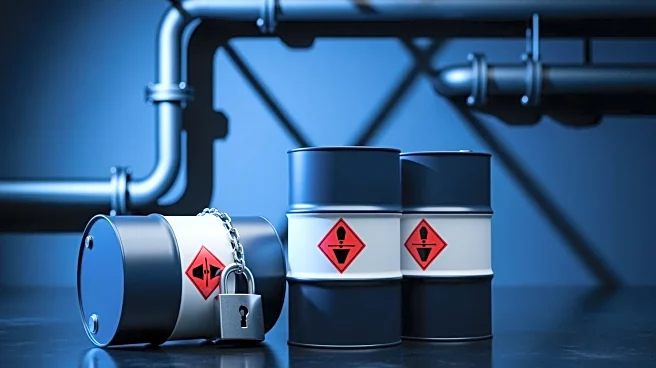What's Happening?
China has announced new export restrictions on 13 chemicals used in fentanyl production, following discussions with President Trump aimed at easing trade tensions. These restrictions apply to exports to the United States, Canada, and Mexico. The move
is part of a broader effort to address the opioid crisis, which has resulted in tens of thousands of overdose deaths in the U.S. annually. The agreement follows a meeting between Trump and Chinese leader Xi Jinping, where China pledged to help end the fentanyl crisis. In return, Trump agreed to reduce related tariffs from 20% to 10%.
Why It's Important?
The restrictions on chemical exports are a significant step in U.S.-China cooperation to combat the opioid crisis. By limiting the availability of chemicals used in fentanyl production, China aims to curb the flow of synthetic opioids into North America. This move could lead to a reduction in overdose deaths and alleviate public health concerns. The agreement also reflects a shift in trade relations, potentially easing tensions between the two countries. However, the effectiveness of these measures will depend on enforcement and the ability to address the underlying issues of drug production and distribution.
What's Next?
The U.S. may monitor the impact of China's export restrictions on fentanyl production and assess the need for further diplomatic engagement. Enforcement of the restrictions will be crucial, and both countries may collaborate on additional measures to combat the opioid crisis. The agreement could influence future trade negotiations, with potential implications for other sectors affected by tariffs. Stakeholders, including public health officials and law enforcement agencies, will likely evaluate the effectiveness of these restrictions and explore additional strategies to address the opioid epidemic.
















